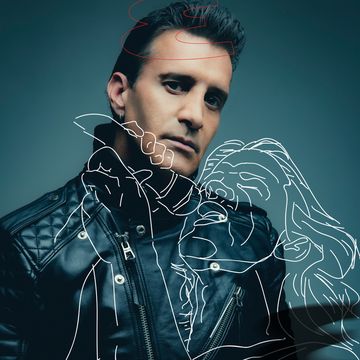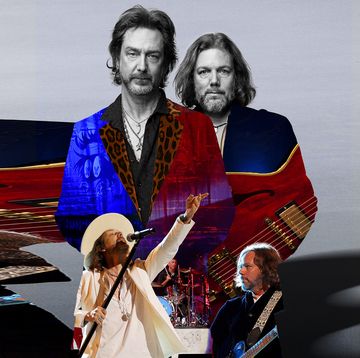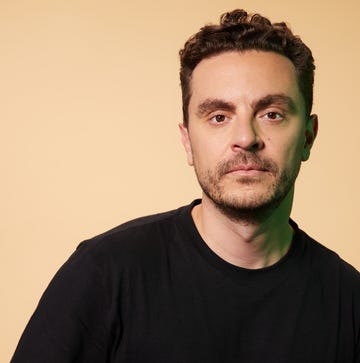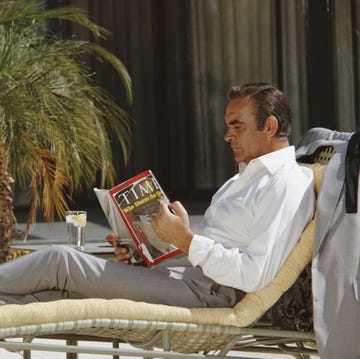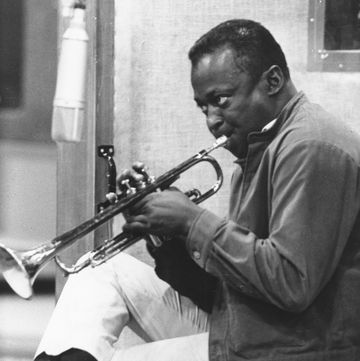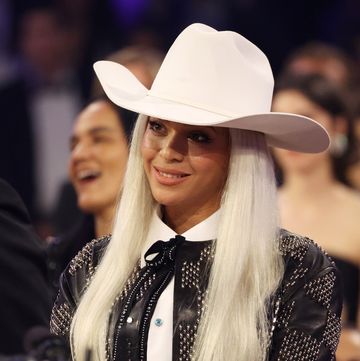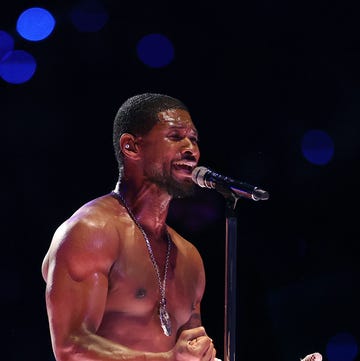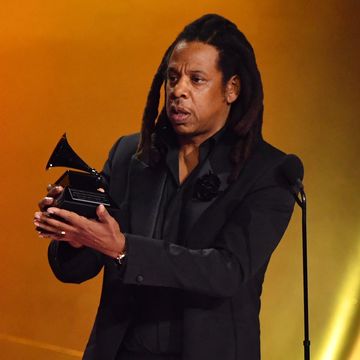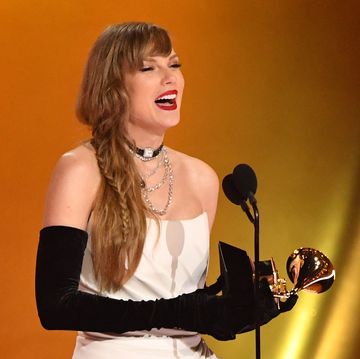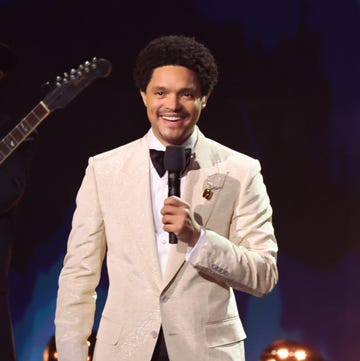A Note from the Author: I believe what I’m setting down here to be true. I fact-checked, reported out, and cross-referenced what was possible to verify, what hadn’t been eroded by 65 years and cocaine. I tracked down and emailed cold an old flame. "This might seem like an odd question," I wrote to her. Did you have a brief affair in the Greek islands with a man named Chuck Ertmoed around 1965? Yes, she said, she had. Why was I asking about Chuck? And why did I also call him Creed? She had no idea. The few inconsistencies I found amounted to misremembered details. I have no reason to doubt anything Creed’s told me, but I’ve also not forgotten the time he stopped me during a line of questioning and said, “We don’t want the truth to get in the way of a good story, do we?”
Creed Bratton is a troubadour. If you’ll listen, he’d like to tell you a story. It’s his, and it’s complicated. There’s so much of it, so much you need to know no matter where he begins. He’s lived three lives, had five names. At least. He’s most well-known, of course, for playing the seedy, scheming octogenarian, with whom he shares a name, on the American version of the television show The Office. He turned a non-speaking background role into a cult-favorite character on one of the most successful comedies of all time, but that’s not the story. So much came before that. Like when he hitched his way, penniless, around the globe, formed a band in Germany, played gigs for oil camps in the Sahara, a brothel full of sheikhs in Beirut, smoked the most potent pot imaginable in Lebanon, chilled with Kirk Douglas in Israel, played some more music, came home, still penniless, formed another band, and then scored two certified gold singles and a gold album–all by the age of 26. Those are just highlights of the highlights, and anyway, that's not the story, either. Not to Creed.
We started talking via FaceTime in June of 2020 (he’s in L.A.; I’m in New York). COVID still felt as unpredictable as it did deadly and Creed, then 77, had confined himself to his townhouse. He was a month away from dropping his ninth solo album, Slightly Altered, and the idea was to pair a profile–Did you know Creed Bratton is a singer-songwriter?–with the release. But as we dug into his past, it became evident he was telling me a story much bigger than a pithy hidden-in-plain-sight piece.
He’s a performer to his core and I often got the sense that, having been locked inside, he was grateful for the opportunity to entertain–both me and himself. He’s spry in conversation, with the energy of an adolescent and a maddening ability to veer imperceptibly into improvised bits. As I interviewed his friends and collaborators, several people cautioned me, unprompted, no joke, Word. For. Word., in the same way: Creed fucks with you. But I’d already learned. Thirty minutes into our first interview, offhand, he mentioned he’d hidden a cryptic message about COVID in one of his songs.
Was that a joke? I paused before asking about it, just long enough to betray my uncertainty. He cackled. Have you ever heard someone actually cackle? It’s startling.
Also, no matter how heartfelt his plea seems, don’t buy it if he ever tells you he wants the group in Finland to stop sacrificing small animals in his name. I actually spent hours fact-checking before asking about it again months later. He loved that one.
What else? I don’t have space here for all of his antics. One day his iPhone’s Siri kept interrupting, “giving me shit,” he said. Soon after, she beeped and began playing J. Cole’s “False Prophets.” Somebody shoulda told me it would be like this… “Siri!” he yelled. “Stop breaking my balls!”
When Office cast-mate Kate Flannery calls while we’re talking: “It’s just Meredith trying to hook up.”
On his work ethic: “I have to admit I’m really one of those people. I’m not happy if I’m not working. Like right now talking to you, I’m just a miserable piece of shit.”
I once asked what name was on his passport (William Charles Schneider–yes) and, after telling me, he launched into an angry five-minute rant about the indignity, when flying, of being forced into close proximity with charisma-corroding regular people who soak up all the “beautiful fucking light” he’s putting out. He laughed, called himself a raging vole.
“This is good stuff,” he said. “This is good stuff. When I read it,” he said, referring to this article, “it better be as funny as this, too.” (Happy, Creed?)
We spoke weekly, sometimes daily, for months. Usually an hour or two at a time. Most often, he was sincere, committed to getting at the story, and apologetic when he couldn’t remember some detail. He sometimes called just to check in or to talk, including on my birthday, when he called to sing to me. He’s an earnest guy and, still, now 79, determined to find himself. He recently started therapy in hopes of treating his earliest traumas. A lucid dreaming class is helping him access his subconscious. He’s micro-dosing mushrooms. (Creed Bratton searching for his identity–irony, right?)
He sings about this search for himself on his most recent album, Slightly Altered, a collection of folk-adjacent songs ultimately unconcerned with genre and, instead, strung together by the humble lyrical honesty of a man longing for love and purpose. “Not Comfortable,” a gentle acoustic ballad with a naked insecurity that unfolds over four short verses, begins: “I’m not comfortable where you lead/It’s your smile I don’t believe/And not knowing quite for sure/that I have what you need.” On “Bubble & Squeak,” a jazzy confessional, he sings, “An ad hoc angel took my soul/Said she’d keep it safe for me/I keep hoping I’ll wind up/Where I’m supposed to be.”
The album was produced by Grammy-winning producer/mixer Dave Way (Michael Jackson, Fiona Apple, Echo in the Canyon) and producer/songwriter Dillon O’Brian. “Creed has this jazzy side to him,” Way said. “He has a love of country music. He loves to rock out. He loves the psychedelic stuff. He loves a sweet, down-home ballad. We can cover all this ground. And in some ways they shouldn’t exist on the same album, but just because it’s Creed at the center, he pulls it all in. He’s never fake. It might be all these different styles, but he’s always himself in the middle of it.”
The album is his ninth. The eight before it bear the same transparency. I walked him through these earliest albums, written primarily in the late ’70s and early ’80s, as a way of exhuming 40-year-old memories. Where were you living when you recorded this? Who is this you're singing about? In nearly all of them, he’s longing for something, usually love. “I’m always looking for, and maybe it’s unrealistic, that kismet, that soul mate,” he said. “Until I die I’m probably going to look for that.” And those few in the ’80s, aggressive with driving bass and yakkity sax, the ones that “really cook,” Creed said, those are pure cocaine.
Considering these songs back-to-back for the first time, he recognized a thread of despair running through them. He gave up everything—money, family, even fame—to be the artist he wanted to be. He’d seen early success as a member of the hit band The Grass Roots (“La la la la la la live for today…”), but left the group in search of creative freedom, to pursue a truer artistic destiny he felt awaited. He never found his footing, though, and instead became a failing artist falling to his vices. Those were dark years. Dark, but defining. Not the pain and not the drugs, what others want to glamorize, but that he worked his way out of both. He fought, hard, to hold onto his belief that something great waited in his future.
“There’s a lot of tragedy in these songs,” he said. “But, there’s also a wistfulness, a yearning for it to be better.” His music is what it is because he’s honest. “I’m not just trying to entertain,” he said. “I’m opening myself up and saying, ‘Here’s my fuckin’ hurt heart.’”
He’s a troubadour. What’s not clear is whether his persistently young audience, which seems intent on preserving him as his Office character, can hear the story he’s telling.
I haven’t yet seen Creed’s show live. COVID compressed his tour to a few dates late last fall and the show I could make happen, L.A. in January, was cancelled during the Omicron surge. A bootlegged video of a show he played in San Antonio in 2019 made it to YouTube. I was grateful to find it, but he’s not thrilled it’s out there. He said it feels dated, the material unfinished, that it doesn’t capture all the show’s become. But he’ll let it live. In the video, he riffs out the ending of “Spinnin’ N Reelin’,” a poppy love song he wrote when he was longing for companionship in the ’80s. A few whoops sound from the audience, he strums the final chord, the audience cheers. And then a voice shouts, “Boboddy!,” quoting from an Office skit that sees his character leading his co-workers through an exercise in which they must create an acronym (about what and why is unclear) from “BOBODDY,” a word he ostensibly had just invented. On stage, Creed smiles and offers a quiet, “Boboddy, boboddy.” The audience screams. Others lob phrases, but it’s hard to make them out. Someone tries to keep the joke rolling: “B is for business!” But Creed is already moving on.
After joining The Office, he relied more on material from the show between songs; less so these days, though he feels audiences pulling him in that direction. He’ll give them a bit of that character and then he’ll sing his songs about heartbreak and loneliness and addiction and self-doubt. He and his tour manager, Mark Evans, recently wrote a bit to break this tension. “I know you’re all here to laugh and joke about The Office, and I really appreciate that,” he’ll tell the crowd. “So, here’s another song about a dead drug dealer.”
Creed was born William Charles Schneider and raised in Coarsegold, California, a small mining outpost on the road between Fresno and Yosemite National Park. He was close with his mother, Cozzette, who he summarized as cool and beautiful, with violet eyes and the expressive charisma of Lucille Ball. She married a firefighting forest ranger named Frank and moved into his tent up in the mountains bordering Yosemite, and then convinced several of her friends to marry Frank’s friends and do the same. Two years after Creed—or Chuck Schneider—was born, his father died while serving on a naval base in Hawaii. “She was never the same after my father died,” Creed said of his mother; he wouldn’t say how exactly, just that he’d heard stories from her younger years. She eventually remarried a man named Sam Ertmoed and Chuck assumed the Ertmoed moniker (though not legally, he learned years later during another name change). Creed refused to say anything more about this time, citing some trauma.
The music in Creed’s bones comes from his family. He spent summers with his grandparents, who played in a local country and western band, The Happy Timers, around Los Angeles. “When they rehearsed,” Creed said. “I remember falling asleep behind this old Gibson amplifier hearing all this old western swing, and I just loved it.” His grandfather taught him his first chords. “As soon as I heard that first E chord come out, that was it,” he said. “I was hooked.”
If Creed’s grandfather taught him to play music, his mother showed him how to love it. “To see her on that mandolin with her eyes up, being transported in spiritual rhapsody, a spiritual euphoria. Her mouth would open. And I would be playing my guitar and watching her going, ‘She is just amazing.’” During a later, unrelated conversation, Creed painted the same image of himself performing “Boxer in a Club,” one of his most mournful songs: “The audience was right there with me,” he said. “I got lost in it. I put my head back: ‘Oh Lord, you send me.’”
Teenage Ertmoed began acting by chance when, in high school, a speech therapist recommended performing on stage to overcome a stutter. He joined a play, got some attention for it, and joined another; by the time he arrived at Sacramento State College (now California State University, Sacramento), he was majoring in drama. Before he could graduate, one of his coaches pulled him aside and told him he had the chops to act, but that he needed some life experience from which he could draw. It was the best acting advice he would ever be given. Ertmoed dropped out of school soon after and convinced a friend to hitchhike with him to New Orleans, where the two then boarded a freighter for Venice.
What begins here are the stories Creed is tired of telling. The shortest possible version goes like this: Chuck Ertmoed arrived to Venice with 25 dollars in his pocket. He met two other Americans busking in Munich and formed a band, The Young Californians. They strung together gigs that took them throughout Africa, Portugal, Spain, back to Europe, Syria, Jordan, and Lebanon. The trio landed in Israel and worked on the set of the Melville Shavelson film Cast a Giant Shadow, and then Ertmoed ran off to the Greek islands with Shavelson’s daughter. He played a few more shows in Europe and then returned to L.A., 55 pounds lighter and calling himself Creed Bratton (a better name for rock and roll, he decided one drunken night).
Looking for his next band, Creed called Warren Entner, whom he’d met in Israel, and the two came together with Rick Coonce and Kenny Fukomoto (who soon left the band) to form The 13th Floor. At the same time, Dunhill Records producers Steve Barri and P.F. Sloan charted a demo, “Where Were You When I Needed You,” for The Grass Roots, a band that didn’t exist. No matter–finding faces for the cover of Tiger Beat was easy, said Kent Hartman, whose book The Wrecking Crew tells the story of the studio musicians who sat in to record the music for most of the music produced in the ’60s, including the early Grass Roots albums. “This was very much a formula,” he said. When The 13th Floor, three good-looking kids competent on their instruments, walked into the Dunhill offices looking for a recording contract, the producers countered with the option to assume the Grass Roots name and tour an album. “Our vision was to be a self-contained writing group,” Entner told me. “But The Grass Roots really did turn into a vehicle for a couple of songwriters.”
Creed’s acceptance of this arrangement endured through this group’s first three albums together. “I mean, imagine,” he said. “We were on the road. We had hit records. I’m making money. I get to fly around the United States and play for people. This is the best.” But by 1968, Creed was feeling creatively stifled. “Can you imagine being Creed Bratton and stuck in that teenie-bopper world?” Hartman said. Creed remembers breaking down in a limo, making a tearful plea that the group start writing and recording their own music. He’d been listening to the The Band, notably, their album Music from Big Pink, the product of a songwriting retreat in a small town near Woodstock. He had a romantic vision of The Grass Roots doing something similar. The group didn’t agree and, by fall 1969, Creed was out.
Here, finally, is the story Creed is keen to tell. It begins in 1970. Freed from Dunhill’s control, he opened himself up to whatever artistic destiny the “powers that be” had waiting for him, the same powers that had led him to future bandmates in Munich and again in Israel. “I didn’t have a plan,” he said. “I was just sitting there watching it happen, you know. I always knew, though, when the opportunity arose, I would be told, because that’s how my life had been.” He read and meditated on Shakti Gawain’s book Creative Visualization. He had a vision, vague but persistent, of a room filled with love, a stage, an award in his hand. The trophy didn’t matter; it could be an award for being old for all he cared. He clung to the knowledge that something more, something, awaited.
He spent his days woodshedding with his guitars in a small studio outside his house in Malibu. He started acting again. Or, he tried. He landed an audition for a Shakespeare play with a prominent director, but he only glanced over the lines before showing up. “I drive in there and I’m in my rock and roll gear, and I’m thinking ta-da, here I am.” He bombed and begged his way off stage.
With no other prospects in L.A., Creed sold his Porsche and, with his wife, Joanna, and young daughter, Amie, left for Europe. Eight months later, after a bit of gallivanting, a little pot, and a lot of wine, they returned to L.A., broke. He and Joanna separated two years later and Creed said it was for the best when mother and daughter eventually moved to New York. He could barely take care of himself. “I wasn’t able to be the dad and study acting and work and provide,” he said. He sent Amie to New York. “It helped me that Joanna took Amie at that time. I was able to focus more on my drugs.”
Two years prior, in 1968, he’d played the legendary Miami Pop Festival and shared the bill with The Grateful Dead, Canned Heat, Fleetwood Mac. He’d toured with The Doors. Now, he took any gig he could find. He landed a spot in a band backing an Elvis impersonator at a hotel lounge in Bakersfield, but was fired after a single show when he was caught laughing as Elvis took the stage dressed like Liberace, with his microphone tucked into his pants. As a memory, it still proved a riot. “Is that your microphone or are you just glad to see me?”
The fallout was less amusing. What little of him that was still intact crumbled. “I was on my own and thought this is pretty much over,” he said. Failure surprised him. “The Grass Roots happened really fast and at a really young age,” he said. “And then you think when things happen fast they’re going to continue happening fast. Well, in my case they certainly didn’t.” In the ’60s, various substances had aided his genuine spiritual quest by providing a shortcut to the other side of the veil, a glimpse at an alternate consciousness. Fog the mind to stir the soul. Now, a few years later, these drugs that had once served his self-exploration became an escape. He slid into heroin. “Basically, my cocaine guy was out of cocaine,” he said. “But I never put a needle in my arm. Never in my life. I was always snorting.” He laughed at the justification. “Heroin is fine, just don’t use the needle, kids!”
At his lowest, he said, he was laid out on the floor of his living room in front of the fireplace, alone and high on heroin. He’d been trying to write but his lyrics were stale, fake. “I’d read it and say, ‘I don’t know what the fuck this stuff is.’” He snapped, pulled out everything he’d written in the last five years, looked over all of it, said, “Fuck this, man,” and threw it into the fire. “It was a definitive moment when I knew I was burning bridges,” he said. “I was letting go of the past. I was trying to make a new start.”
I asked about this time in Creed’s life, and this scene specifically, more often than he wanted, I could tell. He called me after a sleepless night about a month into our conversations. His mind, he said, had been fixated on the picture his drugged-out stories had painted. “Does it sound like I’m a guy who just did a lot of fuckin’ drugs and ran around and just…” And again two weeks later: “I hope that they [the kids] know that this is just something that happened and I certainly don’t advocate…” And the week following: “I am, in a sense, a grandfatherly role model for these young kids now. I don’t want them to ever see that I think that’s a good thing to do.” He’d never deny the drug use. “I can’t sugar-coat it, I did it,” he said. “They’ve got to know Creed is Creed because of this stuff, too.” Context is important. “At the time, it was required,” he said. “In a rock band, you were worthless if you didn’t smoke dope. Who would want to hang with you? That’s how we looked at it.” Mick said so. He can’t be a man ‘cause he doesn’t smoke the same cigarettes as me. “I didn’t really want to do it,” he joked. “I was reluctant, but it was my job. ‘Oh, damn, I’ve got to do drugs, today.’”
By the early ’80s, he’d stopped using heroin. No rehab necessary; he was never addicted, he said. He backed off his other vices, too. “I saw very clear that I had a choice to make,” he said. “I had a destiny that I had to fulfill, or I could escape.” He focused on finding work. He met and married his second wife, Claudia, and they had a son, Beau. These were good times, more stable times, but, as with his first, the marriage lasted only a few years. He moved in with a friend, the author James Riordan, and scrapped for cash. Riordan knew a cleaned-up version of Creed, a daily grinder with a sense his work would pay off. “He knew to get ahead in the arts you had to hustle and make business calls and get your work out there,” Riordan said. “I’d be like, ‘You're going to drive to Culver City to maybe see this guy to maybe give him your resume that maybe could get you a shot at getting this agent that would help you doing this? Fuck, I wouldn’t do that.’”
Creed met the actor Beau Bridges in 1972 when Bridges cast him in a musical staged in his parents’ living room. The play closed, but the two became friends. For years, Bridges hired Creed as his stand-in whenever possible. Film sets were unfamiliar places with unfamiliar people, Bridges told me, and Creed (Bridges calls him “Charles”) was a “positive being” with a great sense of humor. “He was my hook to reality,” he said. Creed did earn a few small roles in several of Bridges’s films. Remember the 1985 Peter Bogdanovich film Mask? The asshole ticket taker at the carnival—“You can ride, kid, but I can't take the blame for what happens to the r----d here.”—that’s Creed.
He had other moneymaking schemes. “Very much like Creed the character,” he said. Where his character might sell fake IDs from his car or hawk the office’s electronics, Creed, when short on cash, would call a friend from his Grass Roots days, a producer at American Bandstand, and ask him to include one of his songs in the Rate-A-Record portion of the show. “Ka-ching,” Creed said. “Money comes in when it airs. I can live another month.” Another scheme: being a stone fox. “I was kind of a handsome guy back in the day,” he said. (This wasn’t vanity; after hearing so many others wax poetic about young Creed Bratton’s charm and good looks, it now seems more like modesty.) “There were so many women’s couches I was living on and running out in the middle of the night with my guitar and my bag saying, ‘Uh, uh, I can’t stay…’” He wasn’t proud; he was describing survival. “I felt bad at times,” he said. “But I also realized this was my card that I had to play.”
It wasn’t always a romantic dalliance that earned him a bed. Peter White, a friend who produced some of Creed’s early music, once opened his door to find Creed standing with nothing but a guitar and a paper bag. Both remember the occasion, neither have complete confidence Creed had anything more in his car.
Creed held down a catering job for something like eight years in the late ’90s, got his own place, a dilapidated half-garage apartment in Beverly Hills with a leaky roof, a mattress leaning against a wall, and a view. The work, mostly craft services at B, C, and D movies, gave him stability, but it nearly broke him. The physicality was bad enough, dragging tables and chairs from a tiny van, and then cramming them back in, working his ass off just to live, but the pity was worse. “People would see me that knew The Grass Roots and there I was serving food,” he said.
The swagger that carried him into his first audition faded. He grew to hate the way people looked at him. He’d be introduced at parties: “Creed used to be in The Grass Roots,” they’d say, 30 years later. “After a while, that wears real thin,” he said. Too many times, people had good intentions but no tact. “Well, at least you had The Grass Roots.” He grimaces, the memory disgusted him. “You’d hear that,” he said. “‘At least you had that one. More than most people.’ But I never bought into it. I would not accept that it was over.”
His vision sustained him. He saw what others couldn’t. That room. The overwhelming of love.
He never missed acting class. He landed a few small roles, a guard in the film Neon City, a gas station worker in Bridges’s Secret Sins of the Father—encouragement enough to keep going. Clippings from local newspapers show him popping up to play music, brief residencies at L.A. cafes in ’89 and ’95. He recorded enough songs to self-publish three albums in 2001 and 2002. A few bands formed and dissolved. Nothing stuck. More than once, it was suggested that he let go of acting and music, get a straight job. He’d say, “I don’t have a plan B.”
Depression set in again. His ego hurt. His old vices started to take another hold. His body hurt. He drank more. He saw where this was going. He’d been here before. He realized, again, he had to make a choice. He threw his hands in the air and made a plea. To whom? God? The universe? Those powers that be? It’s unclear. He quit his catering job and accepted a friend’s offer for stand-in work on The Bernie Mac Show. He didn’t want the gig, but it was at least closer to the action than the buffet. On set, director Ken Kwapis overheard Creed entertaining another stand-in with tales from the road. “There were little bits of it that were so tantalizing,” Kwapis said. “I remember him saying something like, ‘When we opened for The Doors at The Whiskey….’ And I thought, what the hell is going on here?” He finally turned to the conversation right as Creed started playing air guitar. “This is a lick that Hendrix taught me,” he heard Creed say. Kwapis, a rock and roll fan, knew The Grass Roots, and the two became friends.
When Kwapis was tapped to direct the Office pilot, Creed, a fan of the British version, asked if they needed stand-ins. Instead, Kwapis offered a week’s pay for a non-speaking role sitting at a desk in the background of the pilot. This put Bratton on screen, but it wasn’t an obvious break—this Americanized knockoff was a risk.
NBC made a tentative six-episode order for a first season and, with the show suffering derisive reviews and struggling to find an audience, parceled out small orders for season two. “We were always living on the edge of whether we were going to get cancelled,” said Kent Zbornak, producer and, later, co-executive producer, for the series. Still, Creed stayed on as a weekly background player week after week. He felt certain this production and this cast were a rare opportunity to be part of something special.
A few episodes into filming season two, he approached Zbornak with a sort of audition tape, a six-and-a-half minute confessional-style talking head, like those used in the show, previewing his idea for a character. On another production, Zbornak said, he would have rerouted Creed to the casting director and the standard auditioning process, but the show’s slow and uncertain start, paired with executive producer Greg Daniels’s uniquely collaborative production style, had forged a tight community. Zbornak agreed to watch it and share it with the other producers.
The germ of the character is there, notably his mystery, the deadpan references to exotic drugs and illicit behavior. “It was typical Creed,” Zbornak said. “It was unique, it was quirky, it was insane, it was vulgar, but it was absolutely funny.” Zbornak took the video to the writers’ room and showed Daniels and a group of writers and producers. “They were all, of course, enraptured by it,” he said. “They thought it was funny, and they applauded Creed for going the extra mile to try and pitch himself.”
Meanwhile, the writers were in pre-production on a script that would see office manager, Michael Scott, played by Steve Carell, firing a non-speaking background character, either Creed or Devon, played by Devon Abner. Creed had no idea. Daniels took the question to the principle cast members to solicit their opinions. “Greg would go down to [the cast members] and just ask, ‘This is the story line for Halloween, we haven’t decided how it’s going to end. Who do you think Michael would fire?’” Zbornak said.
“We all kind of weighed in on that decision,” Rainn Wilson, who played Dwight Schrute on the show, said. “I remember Greg pulling us aside ‘So, I’m going to fire one of these two actors. What do you think? Who do you think?’ I was like, ‘Oh my god. Don’t foist that responsibility on me.’” Wilson did have a gut feeling, though. “‘I think Creed is someone we’re going to want to have around,’” he remembered telling Daniels.
The writers developed a rough ending that kept Creed on the show. Zbornak printed the script, found Creed sitting at his desk on set, and dropped the pages in front of him. “I said, ‘Here you go, you’ve got a huge role in this episode; start committing it to memory,’” he said. “‘This is your shot.’”
Six-and-a-half pages opposite Steve Carell. Creed marveled at the script: Michael, forced by corporate to downsize and tortured by prospect of making someone dislike him, makes a waffling attempt to fire Creed, who resolutely refuses his fate (“Undo it!”) and, instead, redirects it at Devon. “It was an enormous role of the dice,” Daniels said. And because production was flexible, nothing was guaranteed. “The amount of risk that Creed was running in that scene was very similar to what the character was doing. If he hadn’t done a good job, we would have re-shot it with Devon playing that role. And Creed would have been out of a job.”
Did Creed know that? Did this scene feel like his shot?
Yes.
Was he scared?
No.
He was prepared. He learned his lines forward and backward. He recorded them and listened to them while he slept. He felt them in his bones. And then he walked onto set and learned the writers had tweaked the scene. They gave him new lines. He found a secluded corner near the green room and panic-prayed to those powers that be. I’ll get out of the way and let you guide me. “And then I went in there and played hardball with one of the best comedic actors in the world,” he said.
“It was like he stepped up to bat and hit the game-winning home run, but he’d never picked up a bat before,” Daniels said. “It was an extraordinary thing that he did. And then everybody loved writing for him.”
Creed was promoted to weekly guest star and, in an outtake a few episodes later, the writers merged his past with his character’s when, on a booze cruise, his character reveals he played in the band The Grass Roots in the ’60s. “As you can imagine, drugs played a part,” he says, matter-of-fact, in a talking head. As the character developed, the writers often mined Creed’s past for inspiration. “The thing that makes him so fun to think about,” Daniels said of Creed’s life, “there’s almost nothing I wouldn’t believe is possible to have happened.”
The writers began to indulge this unfettered plausibility the very next season. “We found his character to be so delightful and so zany, that every time we went to him for just a quick pop,” Zbornak said, “it was so distinctly crazy and funny, we realized we had to make him a series regular.” And they did.
Take what is arguably his most famous bit from the entire series, his only line in the season three premiere, “Gay Witch Hunt.” In the episode, Michael Scott, socially illiterate and over-involved, calls a meeting to publicly invite Oscar, the closeted gay accountant played by Oscar Nuñez, to stand and “officially come out.” Oscar, humiliated, does, and just when you’re cringing so hard you think you’ll turn inside out, the shot cuts to a Creed talking head: “I'm not offended by homosexuality,” he tells the camera. “In the sixties, I made love to many, many women, often outdoors in the mud and the rain, and it’s possible a man slipped in. There would be no way of knowing.”
It’s unclear what happens to Creed on the show. The last we see him, at the end of the series finale, two police officers are leading him out of the office in handcuffs. Nearly nine years later, fans still flood the r/dundermifflin subreddit with pet theories on his past and his whereabouts, and they interact with him, on social media and in person, as if he is the character. Lines from the show are quoted back to him endlessly; he often turns down offers for drugs and invites to college parties. Creed, for his part, has stoked the mystery by selectively re-incorporating some of the character’s traits—his seedy nature, his aloofness—into his own behavior and biography. Life imitating art imitating life. Like his character, who might have killed someone, or stolen an identity, or is maybe living under his desk at the office, he’s shrouded himself in enough uncertainty and intrigue to safeguard the space he’s hollowed out for himself in a generation’s subconscious, a squatter in the zeitgeist.
“I hope it helps somebody,” Creed says about his story. “I hope it helps some young actor or some young musician not give up.” Artists dream and they sometimes suffer for it. Sometimes they search for ways to dull the pain. Even the talented ones have driven home to the wrong house. “I don’t take this as weakness. I just think it’s the feathers you wear as an artist. This is what you go through, come out on the other side. Hopefully. I’m one of the lucky ones that saw the dark stuff and got through it okay.”
What kept him going when others would have given up?
“I don’t know,” he says. “Maybe that’s something we can address. Is there an X factor?”
I shrug. That’s what had drawn me to his story. How had he held onto hope for 35 years?
No one could see what he saw, he says. That vision. A room filled with love, a stage, an award in his hand. An award for what? That’s not the point. “You couldn’t talk me out of that,” he explains. “I wasn’t going to fail after that.”
He brought it up again a week later. We’d been talking about meditation and what one might find on the other side of the thin veil that separates us from our subconscious. “You sometimes think you see your destiny,” he says. “You know it and you feel it. This destiny you have is running parallel with your own life. It’s running right alongside. It’s just there. And you feel that if I stepped over, I could be right there in the future with this thing that I’m supposed to be. When you get glimpses of that future, that’s the stuff that keeps you going. I want to tell kids, these young kids, if they see something like that, don’t let anybody talk you out of it.”
Here, I see a flash of anger I hadn’t yet experienced from him, the anger he later told me terrorized him as a young man. He’s always lacked patience for doubters.
“They go, ‘You know what the odds are? Blah blah blah.’ They used to tell me this stuff, too,” he says. “Fuck you, man. Really. Fuck you. I don’t want to hear your bullshit. I’m going to go this way. Even if it’s mom and dad. I’m sorry, mom and dad. Love you. But I’ve got to do this. And they’ll respect you. If you do who you’re supposed to be, they’ll respect you for it.”
He pauses and breathes.
“God, we’re really into this stuff today,” he says.
He doesn’t like speculating on how he might have done things differently. Like, he hates it. I didn’t even bring it up. He brought it up. The same day he ranted about charisma-corroding regular people soaking up all his beautiful light. “It doesn’t really matter,” he said, calm at first. “It doesn’t really matter. If it’s past, it’s past. People always want to go, ‘Well what if you didn’t do that? What if you didn’t leave? What if you had done this? What if you’d taken that movie?’ Why even talk about it? Why even discuss it? We can’t change it. What good is it to blabber this stuff around? For me it’s just a waste of time. I don’t find it amusing,” he said, still calm. And then he shouted: “I DON’T FIND IT FUCKING AMUSING AT ALL!”
I laughed. He smiled, that’s all he’d wanted.
“Maybe the way it turned out, maybe this was the script,” he said. “It had to be. Because you can’t write songs like ‘Boxer In a Club’ if you haven’t experienced some pain.”
The boxer is the dead drug dealer. He wasn’t joking.
“I want the music to be more than the character,” he said. “But I can’t be a crusader for that. If they get the music, they get the music. I’m not going to stop being funny and giving them that character because I wouldn’t be there with my music if The Office hadn’t slipped me through the door.”
For another bit in his show, Bratton’s tour manager gives him a critic’s review of a previous gig, actually written by Creed, that has just come out: “Tonight, Creed played the hits from his long-forgotten catalog. This almost-adequate show gave phoning it in a new meaning. He set the bar just high enough, with a lot of inside jokes that no one got. Yet, throughout the evening, he always seemed pleased with himself for no apparent reason. Even though it starts out sort of slow, it really bogs down at the end. You’ll leave the show like me—confused and unfulfilled. Which is apparently just what he wants.” “Yeah, well, all right,” Creed says, rolling up the paper and feigning annoyance.
Deprecation aside, it’s an interesting moment of self-awareness. Creed’s banter between songs does, at times, play like an inner monologue. He does seem pleased, sometimes with himself, but mostly with the moment, as if he were made for this, lived through hell for this, fought to maintain belief in this, as if he were destined to be here playing music, telling stories, a room filled with love, a stage, the audience in his hand.
















